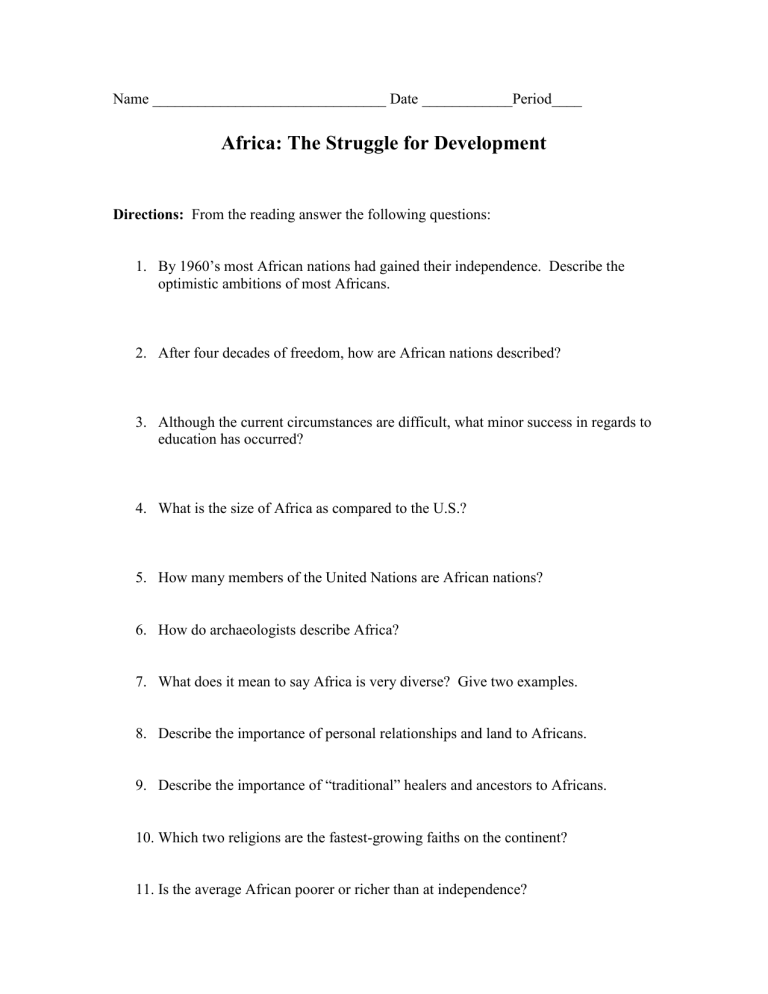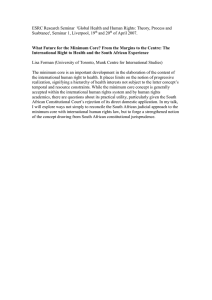Africa: The Struggle for Development

Name _______________________________ Date ____________Period____
Africa: The Struggle for Development
Directions: From the reading answer the following questions:
1.
By 1960’s most African nations had gained their independence. Describe the optimistic ambitions of most Africans.
2.
After four decades of freedom, how are African nations described?
3.
Although the current circumstances are difficult, what minor success in regards to education has occurred?
4.
What is the size of Africa as compared to the U.S.?
5.
How many members of the United Nations are African nations?
6.
How do archaeologists describe Africa?
7.
What does it mean to say Africa is very diverse? Give two examples.
8.
Describe the importance of personal relationships and land to Africans.
9.
Describe the importance of “traditional” healers and ancestors to Africans.
10.
Which two religions are the fastest-growing faiths on the continent?
11.
Is the average African poorer or richer than at independence?
12.
List 3 reasons why there is poverty and famine in many African nations?
13.
List the African nations that have suffered on armed conflict (civil wars, disorder, military dictators)?
14.
What is the main factor that helps to account for Africa’s relative poverty?
15.
The economic growth rate for the continent of Africa is 1.5 percent- the world’s
___________________ and fare below that of the _______________________ growth rate.
16.
What is the greatest health care challenge facing Africa today?
17.
What part of Africa has been especially hard hit in recent years?
18.
How has this affected the overall life expectancy? (Use Botswana as an example)
19.
With the spread of Aids what other diseases are resurging (reappearing)?
20.
Africa has seldom been rich, although it has vast resources, and some rulers and other elites have become _____________________.
21.
Explain how the following things greatly limited the economic development in many African regions.
Slave Trade:
European colonial rule:
Inflationary conditions:
22.
Who owns the mining companies today in Africa?
23.
What type of regimes (governments) do most states in Africa have?
24.
By 1989, which few countries could reasonably claim that their governments were elected in free and fair elections?
25.
Why has the past multiparty contests (elections) in North Africa been manipulated?
26.
As of 1990’s, what has started to change in African nations?
27.
Why did most post colonial African governments take on autocratic forms?
28.
External powers have long ___________________ African dictatorships through their grants and military and economic aid.
29.
What do you think the author means by “external powers”?
30.
What dictator in which country did the U.S. help to stay in power?
31.
List some positive improvements that have occurred in African nations that lead to some optimism about the future.






